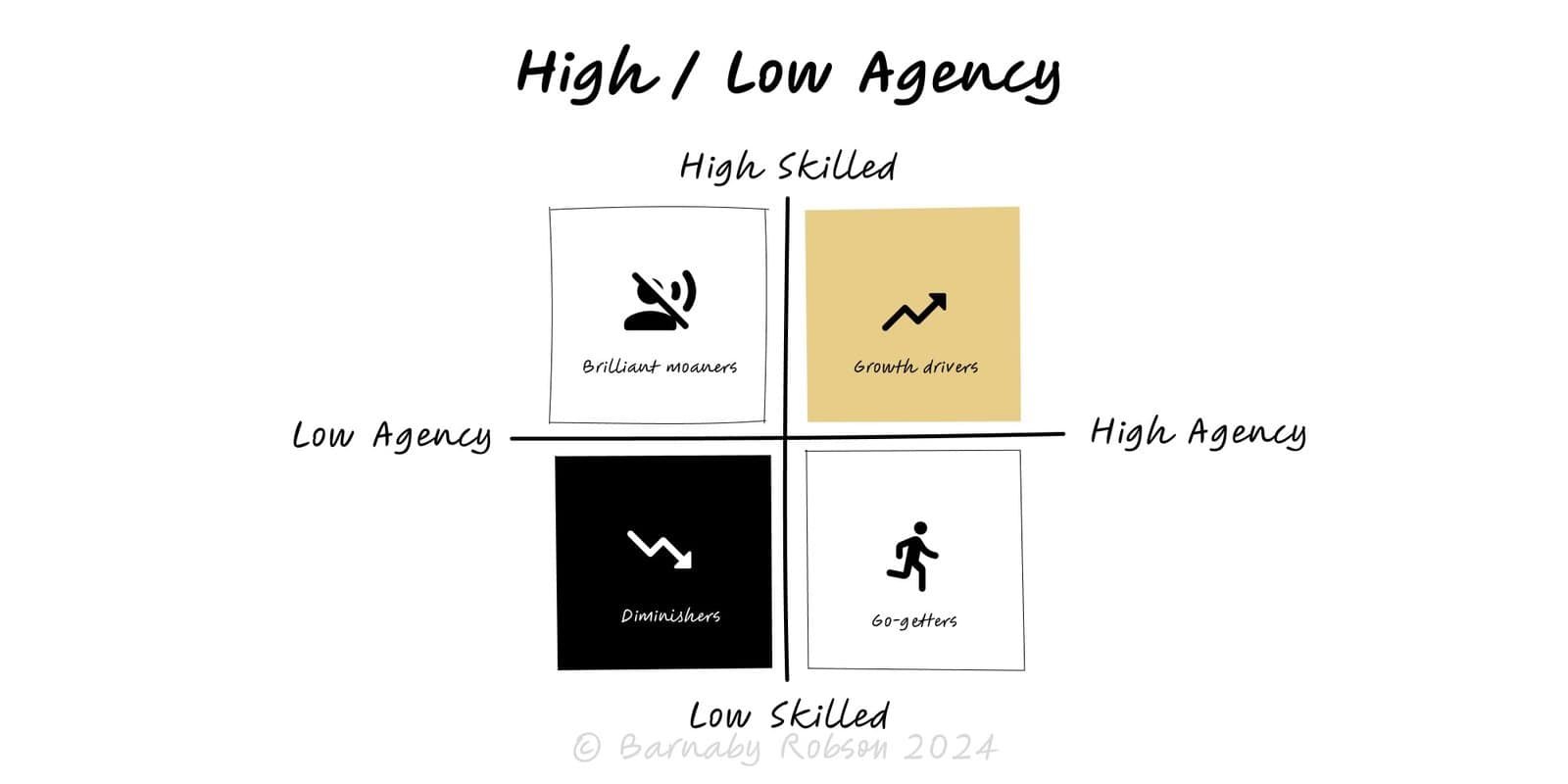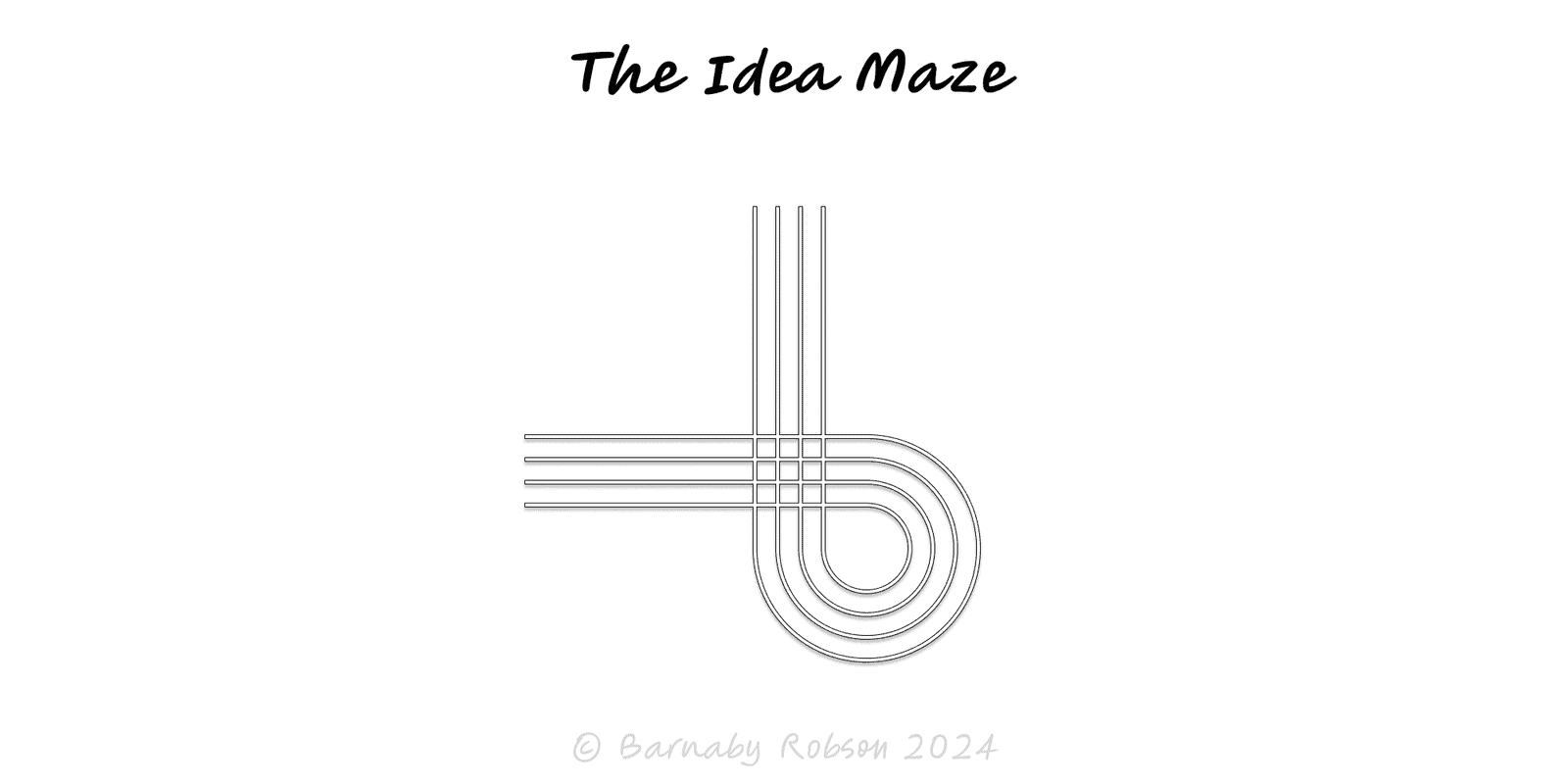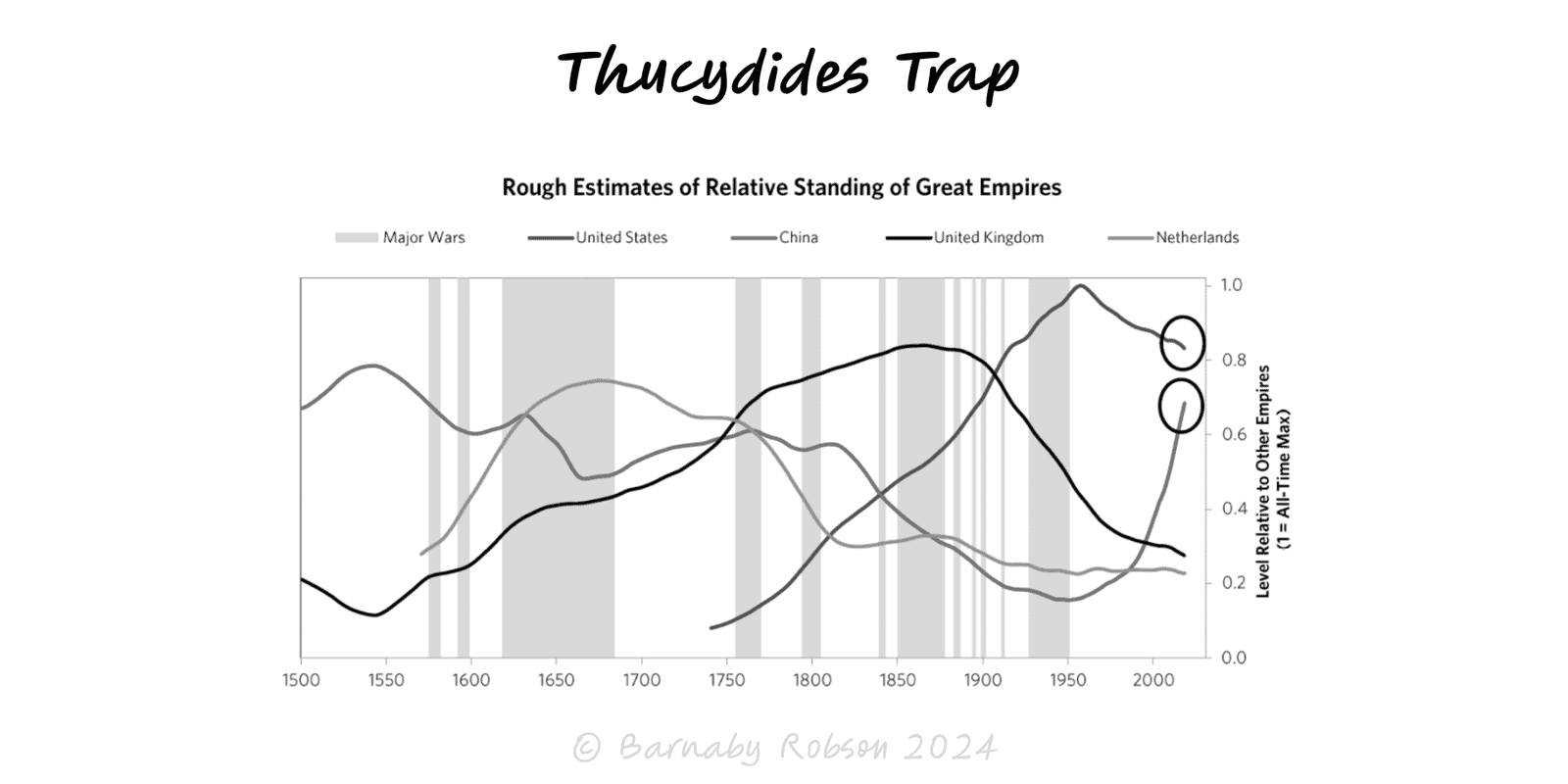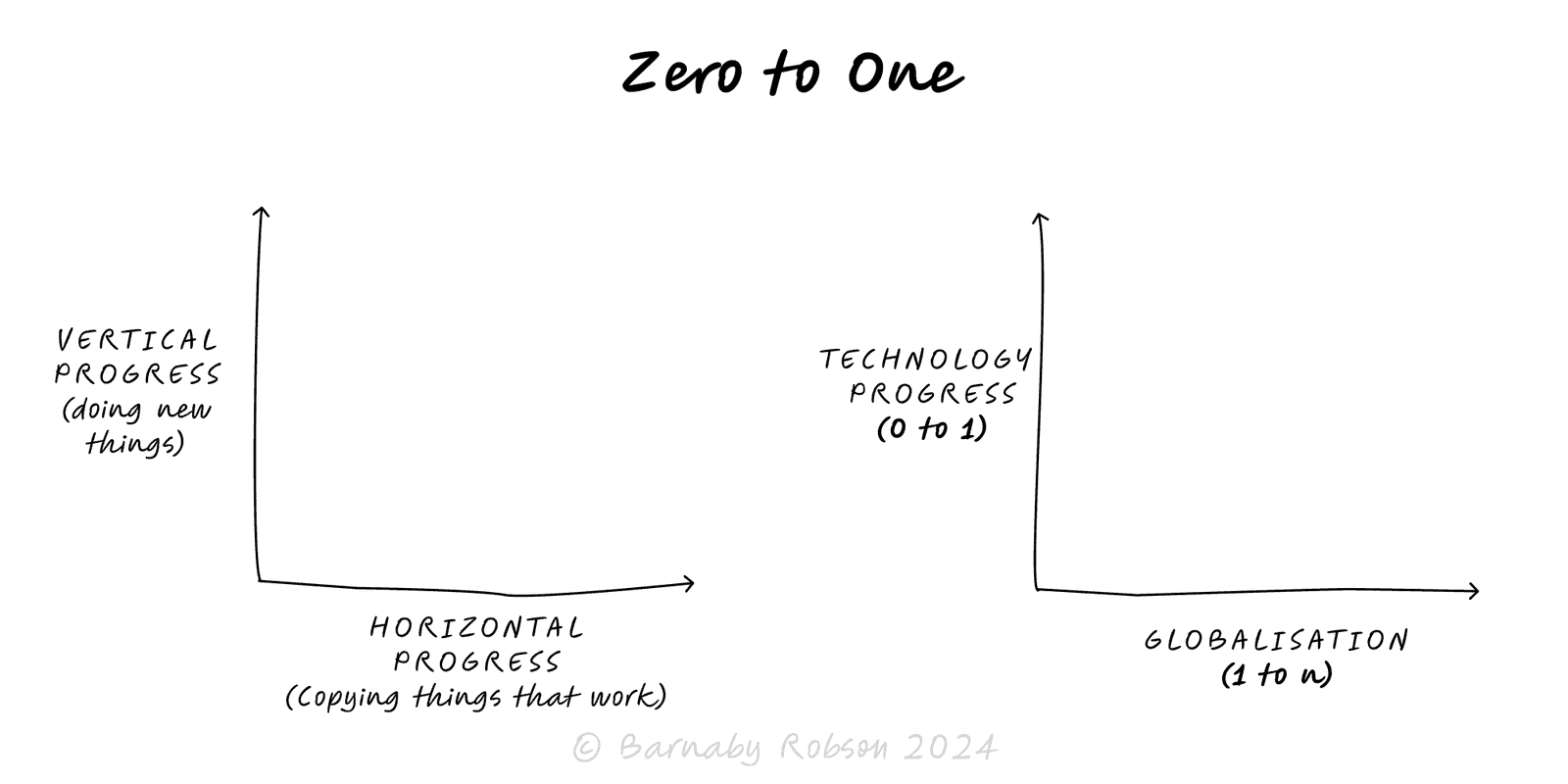Agency (high / Low)
A practical lens for how people approach problems: low-agency waits for circumstances; high-agency creates options and moves first.
Author
Common usage; rooted in psychology’s locus-of-control and learned-helplessness research
Model type



